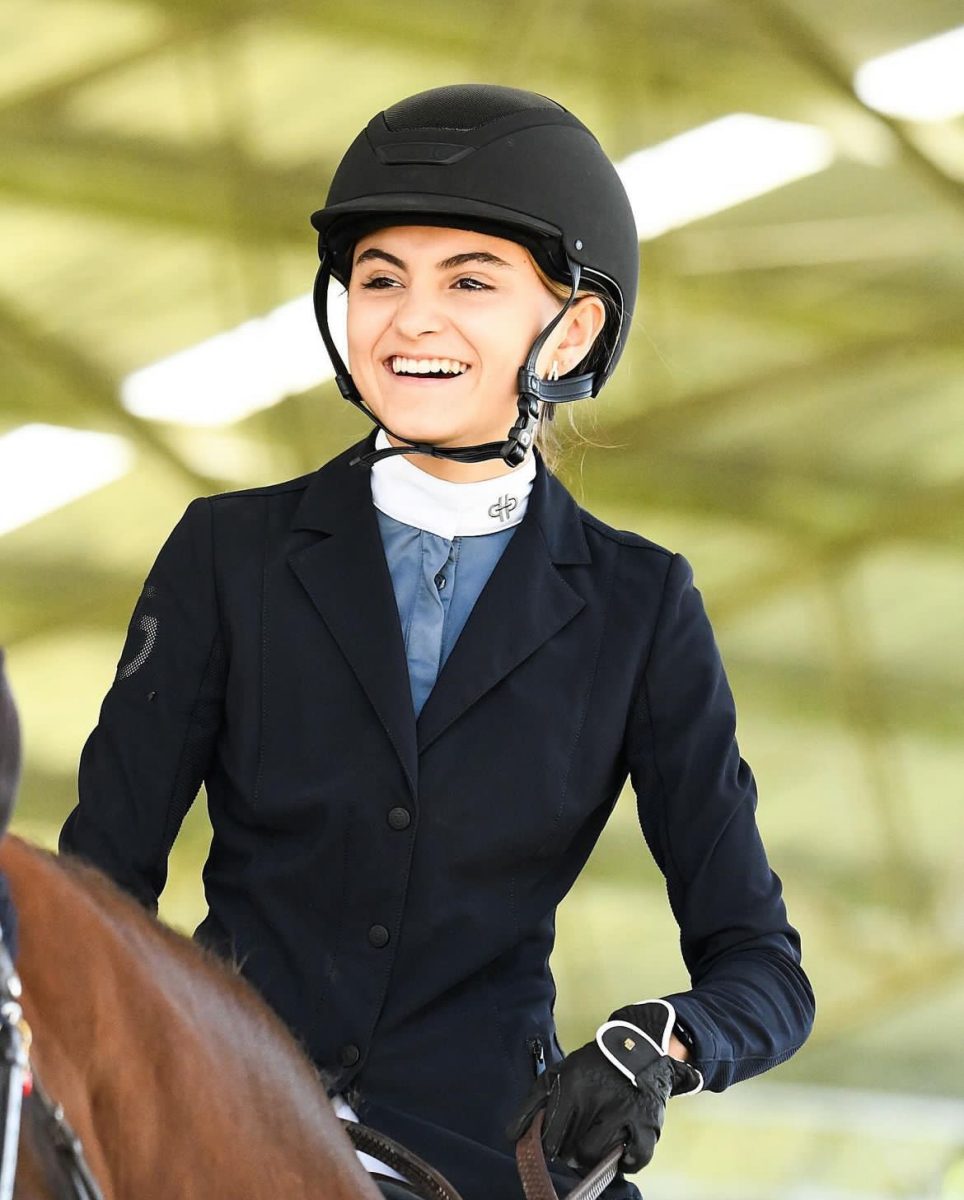Youth participation in organized sports has become a staple of every childhood development. Parents and children are likely to explore various sporting activities from an early age. But how young is too young to start practicing in competitive sports, and what are the challenges and advantages of such decisions?
Introducing the world of show jumping, which has shown to be a very complete and high-adrenaline activity. The physiological and social development areas are two of the major benefits of sports participation for kids. Young children, as well as their families, can benefit greatly from involvement in high-level sports from an early age. Like participation, skill development, fairness, etc. From the child’s perspective, this could be highly demanding and compromising for many. Children must be willing to compromise on any type of level of events to successfully participate.
Carla Echavarria, a Grade 11 student, who is a young show jumper, represents the country on national levels, in numerous competitions but still has to balance school and carry on her grades.
“I mostly manage my time by trying to work as efficiently in school, and complete all my school work on time as well as my homework so I can have time for my training after school and competitions while still earning good grades and continuing to show up every day to school,” Echavrarria shared.
This is not only a hobby for Carla and many other young jumpers who want to pursue this lifestyle and sport in the future. Countless other factors create immense pressure on Carla and her family such as the pressure of caring for an animal and connecting with them on a deeper level for success. Carla’s insights also showed the challenges athletes face while competing in various locations, including the impact of weather conditions on her horses. She stressed the importance of tuning out distractions, focusing solely on her horse, and creating a strong connection with her teammates.
“This bond is a hard thing to have because communication with the horse is hard and complicated because of us not speaking the same language, trust is built with time the horse needs to form a strong trust for him to give his 100% he had to gain a lot of trust, once they do they are going to be willing to give their heart for the riddler. I built the connection with time and patience, giving her all the attention and trust I could so we could form a bond. We maintained our trust by being patient with each other and learning to understand our movements and daily life experiences,” Echavarria said.
Sara Gomez, a Grade 10 student and competitive athlete, gave her insight into the pressure and the psychological demands young athletes encounter when participating in competitive sports like show jumping. She gave us her honest opinion on her personal experience of dedicating her life to the sport and the influence that it has had in her personal life.
“Competing as well as during training, I feel fear. That’s why I decided to go for expert help. I worry about failing and injuring the horse or myself. I believe that every time I lose, it defines me as a person, it makes my entire day difficult, and I feel useless. Losing is difficult for me. I entered class the following day feeling worried due to the previous day’s result,” Gomez stated.
Carla is persistent when it comes to the beneficial and positive aspects of her sport. She projected a lot of self-assurance, which at the end of the day makes all the effort worthwhile. These athletes have an enormous amount of intense passion. Being committed and driven is all it takes to succeed in their sport, no matter the obstacles they face or the battles they partake in.
“I love having a passion for something that I dedicate my entire time to doing, that is challenging and makes me invested in training and having big goals, which is why I am passionate in this sport,” Echavarria said



